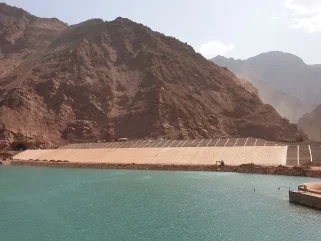
The World Bank has approved a $350 million International Development Association (IDA) grant to support the first phase of Tajikistan’s Rogun hydropower plant project. The plant, with a planned capacity of 3780MW, aims to improve electricity access for 10 million people in Tajikistan and address persistent winter power shortages.
Approximately 70% of the electricity generated will be exported to Kazakhstan and Uzbekistan, replacing fossil fuel-based power and reducing greenhouse gas emissions.
“The Rogun Hydropower Project can help Tajikistan and countries in Central Asia to accelerate their path to adopting clean energy, boost economic growth, and enhance climate resilience,” said Antonella Bassani, the World Bank Vice-President for Europe and Central Asia. “Once the project is completed, households and businesses will be able to rely on much needed uninterrupted, affordable, and clean energy supply. The World Bank brings substantial knowledge and experience to a project of this scale, from economic reforms to implementing large infrastructure under robust environmental and social standards.”
The Government of Tajikistan has committed to allocating 3% of electricity sales to a nationwide Benefit Sharing Program (BSP) during the construction period, increasing to 5% post-completion. These funds will support vulnerable populations through social safety net programs.
The Rogun hydropower plant is projected to cost $6.29 billion, financed by project revenues, domestic resources, and contributions from development partners, including the Asian Development Bank (ADB), Asian Infrastructure Investment Bank (AIIB), and others. The World Bank’s involvement aims to ensure that the project adheres to international financial, environmental, and social standards while mitigating risks to Tajikistan’s fiscal health.
“Rogun hydropower plant is an important regional project,” said Charles Cormier, World Bank Director for Infrastructure in Europe and Central Asia. “In addition to alleviating energy shortages in Tajikistan and helping decarbonize grids in fossil-dependent Kazakhstan and Uzbekistan, Rogun hydropower plant can help balance services for intermittent sources like solar and wind to accelerate the clean energy transition in the region. Once completed, it will promote the development of a regional electricity market and enhance regional cooperation on energy.”
Beyond energy generation, the Rogun hydropower plant will enhance water security and climate resilience, using its reservoir to mitigate downstream flooding risks and support other hydropower facilities.






